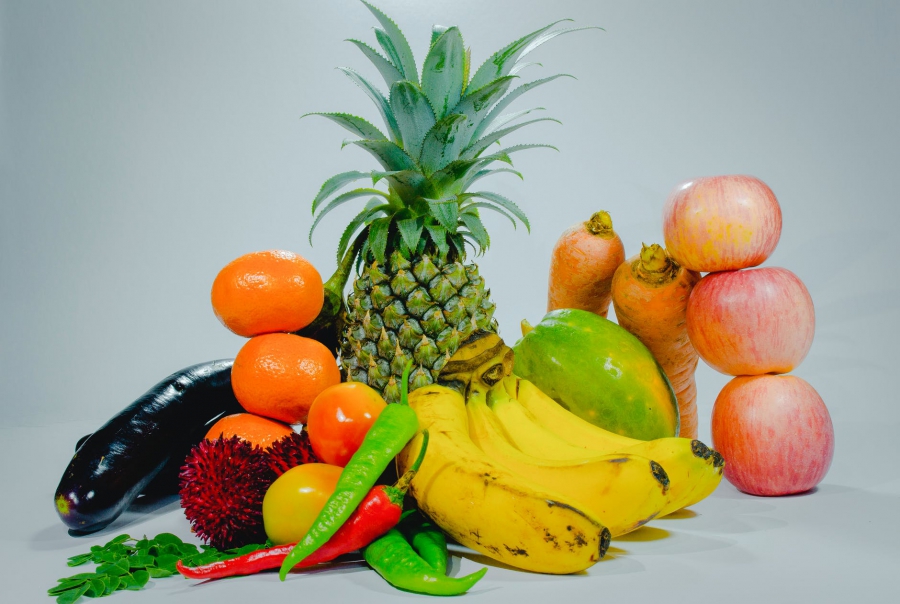START THE NEW YEAR WITH THESE 5 HEALTHY DIETARY HABITS
Or you can start now.

Did you know that the key to a healthy diet is eating the right number of calories and staying active? If you want to start living a healthier life, here are five dietary tips you can easily implement.
Carbohydrates high in fiber as a basic food ingredient

Carbohydrates, found in potatoes, bread, rice, pasta, and cereals, should make up more than a third of your diet. Instead of carbohydrates, health experts recommend foods high in fiber, which can be found in whole grain varieties such as whole-wheat pasta, brown rice, or potatoes with the skin on.
Try to include at least one high fiber carbohydrate food in each main meal when cooking. Some people believe that carbohydrate foods can make you fat, but the number of calories in carbohydrates is actually less than the number of calories in fat. Keep an eye on the amount of fat you use when cooking or serving food because it adds calories, such as oil in crackers, butter in bread, and cream sauce in pasta.
Reduce your intake of saturated fat and sugar

It is undeniable that fat is necessary for our diet, but it is preferable to pay close attention to the amount and type of fat in our daily food intake. Saturated and unsaturated fats are the two main types of fat that we should be aware of.
Too much saturated fat in the diet can raise cholesterol levels in the blood and increase the risk of heart disease. According to health experts, men should consume no more than 30 grams of saturated fat per day, while women should consume no more than 20 grams of saturated fat per day. Saturated fat can also be found in cheese, biscuits, cakes, sausages, butter, and cream.
In addition to saturated fat, we must consider the sugar content of the foods we eat. Sugary foods and drinks can not only increase the risk of obesity and tooth decay, but they can also cause diabetes. Add natural ingredients such as honey or sugar made from fruits or vegetables to reduce the sugar content of food.
Eat more fish

Fish is high in protein and contains a variety of vitamins and minerals. Aim for at least two servings of fish per week or a portion of omega-3-rich fish. They may lower the risk of heart disease, depression, inflammation, autoimmune diseases, and obesity.
Salmon, trout, herring, sardines, pilchards, and mackerel are common sources of omega-3 fatty acids. Avoid canned fish as much as possible because it contains preservatives and high salt content.
Limiting your salt intake to no more than 6 grams per day
High-salt foods are undoubtedly harmful to one's health. People with high blood pressure are at increased risk of developing heart disease or stroke. Even if you don't add salt to your diet, you may be consuming too much salt without even realizing it. Approximately three-quarters of the salt you consume is already present in the foods you buy, such as cereals and sauces.

As a result, use food labels to reduce excessive salt consumption. More than 1.5 grams of salt per 100 grams of food is considered excessive. Adults and children over 11 years old should consume at most 6 grams of salt or about a teaspoon per day. It is not recommended that young children or toddlers consume any salt at all.
Every day, eat at least five servings of a variety of fruits and vegetables
It is essential to eat some fruits and vegetables. Beauty experts, doctors, and other health professionals constantly remind us to eat fruits and vegetables because they are highly beneficial to our health. It is recommended to consume at least five servings of fruits and vegetables per day, including vegetables in fruit juices or pieces of fruit in daily snacks or cereals.

One serving of fresh, canned, or frozen fruit and vegetables containing 80 grams and 30 grams of dried fruit is considered acceptable. Drinking a glass of fruit juice, vegetable juice, or smoothie (150 milliliters) also counts as one serving, but limit yourself to no more than one glass per day because these drinks contain sugar. Also, remember to drink plenty of water every day.
#THE S MEDIA #Media Milenial #healthy dietary habits



























